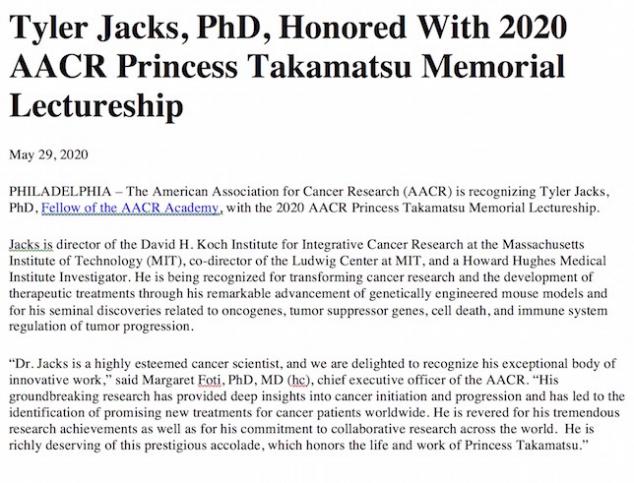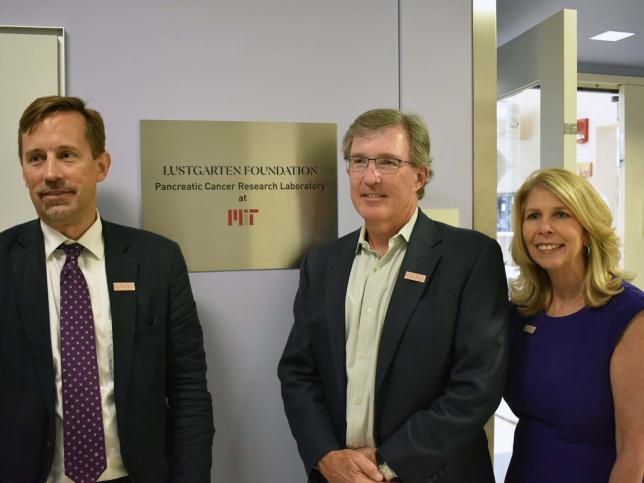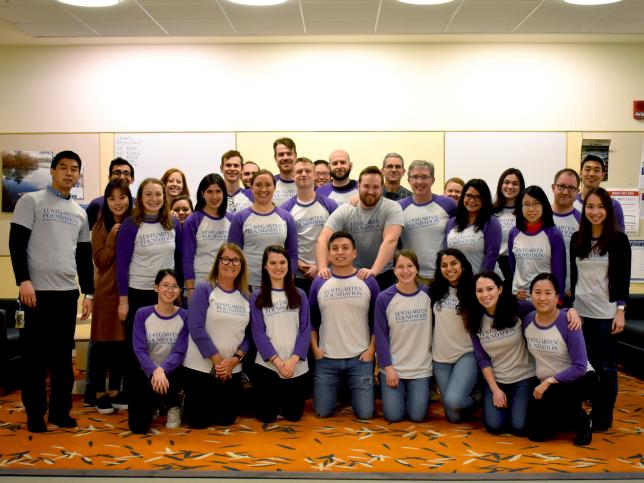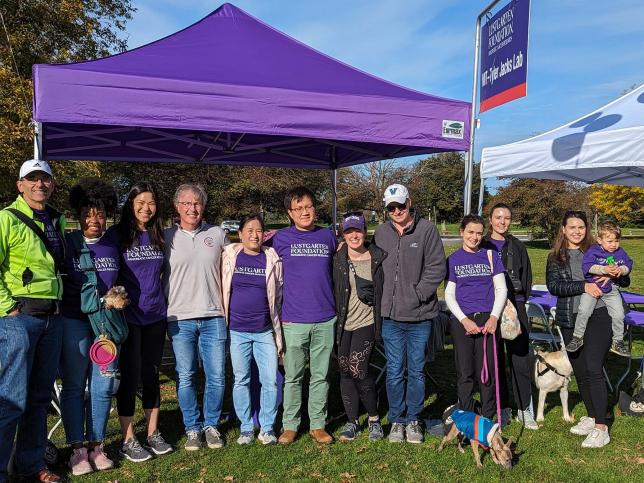The Jacks Lab is interested in the genetic events contributing to the development of cancer. The focus of our research has been a series of mouse strains engineered to carry mutations in genes known to be involved in human cancer. more >>





Tyler Jacks is a Daniel K. Ludwig Scholar and David H. Koch Professor of Biology at MIT. Our studies are supported by a mixture of various sources including the National Institutes of Health, Ludwig Fund for Cancer Research, Lustgarten Foundation, and Koch Institute for Integrative Cancer Research.
Value Statement
The Jacks Lab encourages highly talented and motivated individuals of all backgrounds to join us in pushing the boundaries in what we can achieve in cancer research. In partnership with the MIT community, we strive to train all lab members to reach their full potential and contribute to our understanding of cancer and new ways to detect and effectively treat the disease. If you are interested in joining the lab as a postdoctoral fellow, please send your CV/Resume to Dr. Tyler Jacks. If you are interested in being a graduate student in the lab, please apply to the Biology Graduate Program (https://biology.mit.edu/graduate/). We are currently recruiting techs, and the job requisition can be found at: https://careers.peopleclick.com/careerscp/client_mit/external/jobDetails/jobDetail.html?jobPostId=31897&localeCode=en-us.

